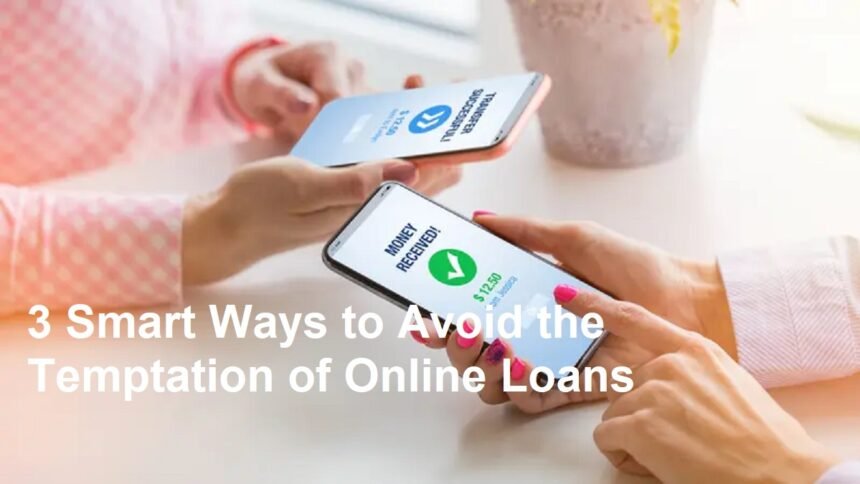Introduction
In today’s fast-paced digital world, online loans are just one tap away. With promises of quick cash and instant approval, it’s easy to understand why so many people fall into the trap. But what starts as a small loan can quickly spiral into overwhelming debt with high interest rates and hidden fees.
This article will explore 3 smart ways to avoid the temptation of online loans, explain why people are often drawn to them, and share expert insights from economists on the risks. Most importantly, you’ll find practical money tips to help you build better habits and confidently say no to impulsive borrowing.
Why So Many People Are Tempted by Online Loans
Before we dive into prevention strategies, it’s important to understand the main reasons behind the temptation.
1. The Promise of Instant Cash
Unlike banks, which require paperwork and waiting, online loan apps approve requests in minutes. The speed and convenience make them feel like the easiest solution.
2. Lack of Savings or Emergency Fund
Economists explain that people without savings are especially vulnerable. Even a small emergency—like a broken phone or medical bill—can push someone to borrow online.
3. Aggressive Marketing Tactics
Online lenders use flashy ads that say “instant approval” or “cash in 5 minutes.” These campaigns create urgency and make borrowing look harmless.
4. Psychological Triggers
The borrowing process feels less “real” online. Without face-to-face interactions, pressing a digital approval button makes people underestimate the consequences.
Expert Insights from Economists on Online Loans
Economists warn that while online loans seem convenient, they are often designed to trap borrowers in debt.
- Debt Cycle Risk: Many borrowers roll over loans, creating endless repayment struggles.
- Impact on Mental Health: Debt stress often leads to anxiety, sleep problems, and strained relationships.
- The Illusion of Wealth: Easy access to borrowed money makes people feel richer than they are, encouraging overspending.
In reality, online loans rarely fix financial problems. Instead, they create new ones.
3 Smart Ways to Avoid the Temptation of Online Loans
Now, let’s look at practical strategies to keep yourself safe from impulsive borrowing.
1. Build a Simple Emergency Fund
One of the best protections against debt is an emergency savings cushion.
- Set small goals: Start with one month’s expenses.
- Try the 30-day challenge: Save a small fixed amount daily—just $2 to $3 a day adds up quickly.
- Automate savings: If possible, set up automatic transfers into a separate account.
Having even a modest emergency fund gives you peace of mind and reduces the need to borrow.
2. Practice “Pause Before You Borrow”
Impulse borrowing often happens in moments of stress. To fight that urge:
- Ask yourself hard questions: Do I really need this loan, or is it just a want?
- Use the 48-hour rule: Wait two days before making any loan decision. The urgency usually fades.
- Look for alternatives: Negotiate a payment plan, borrow interest-free from family, or sell unused items.
Taking time to pause helps you avoid emotional decisions.
3. Strengthen Your Money Habits
Long-term prevention comes from daily financial discipline.
- Track your spending: Use an app or notebook to see where your money really goes.
- Avoid lifestyle inflation: Just because your income grows doesn’t mean your spending should.
- Learn continuously: Read financial blogs, watch videos, or attend workshops to grow your money knowledge.
Better habits make borrowing unnecessary over time.
Extra Tips to Stay Loan-Free
- Delete loan apps to reduce temptation.
- Share your savings goals with a friend for accountability.
- Celebrate small wins, like a debt-free month or reaching a savings milestone.
Conclusion
Online loans may feel like a quick solution, but economists agree: the long-term risks are far greater than the short-term relief. By understanding why people are tempted, paying attention to expert warnings, and practicing the 3 smart ways to avoid online loans, you can stay financially secure and debt-free.
Start today: challenge yourself to create a 30-day emergency fund plan. Even small daily savings can protect you from future financial stress. And once you begin, share your experience—your story might inspire someone else to break free from the lure of online loans.












